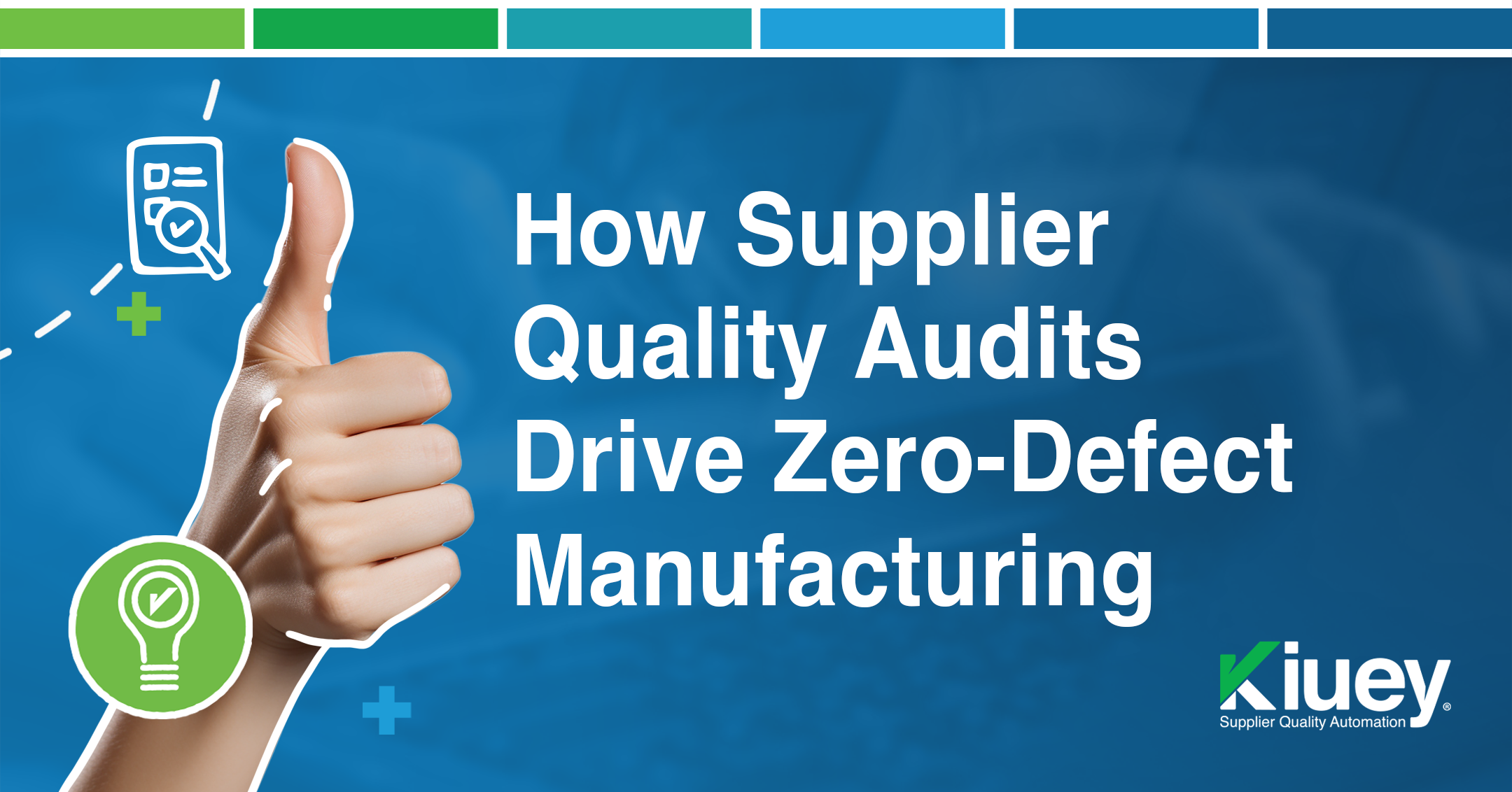
May 31, 2024
The concept of “zero ppm” (parts per million) or “zero defects” has been around since the 1960s. It represents a continuous pursuit of excellence in manufacturing and development processes.
Achieving “Zero Defect” translates to significant benefits – reduced costs associated with failure and increased revenue through enhanced customer satisfaction.
While applicable to any organization, zero defect principles are particularly crucial within complex supply chains where large volumes of components are involved.
Several methodologies can contribute to achieving zero ppm. However, supplier quality audits stand out as a powerful tool. Here’s how effective supplier audits can propel your zero defect journey:
1. Evaluating the Supplier’s Quality Management System (QMS):
A robust QMS on the supplier’s side translates to a higher guarantee of zero defects for the customer. A well-implemented QMS ensures that defects don’t get passed down the supply chain. Additionally, the preventive and corrective actions facilitated by a strong QMS are essential for reaching zero ppm.
2. Scrutinizing Manufacturing Processes and Products:
Manufacturing process audits assess the process’s capacity to deliver zero-defect products. Statistical studies and process capability indices can be used to validate this. Audits also ensure the presence of effective error-proofing mechanisms (like Poka-Yoke) to catch and prevent defects at the source. This mistake-proofing is critical for achieving zero ppm from the customer’s perspective.
3. Assessing Supplier Risks and Monitoring Performance towards “Zero Defect”:
Managing supplier risk assessments in today’s intricate marketplace presents numerous challenges. The initial step towards a comprehensive supplier assessment involves implementing a system for consolidating supplier data across all relevant systems.
Unfortunately, many companies utilize “zero ppm” as a mere marketing slogan without implementing the necessary steps to achieve it.
Supplier quality audits are a powerful tool to ensure quality throughout the supply chain, representing a significant first step towards zero defects. A combination of effective supplier audits alongside robust incoming inspection processes for the customer can turn the “zero ppm” philosophy into a tangible reality.
Subscribe to our newsletter.
Your go-to destination for insights, best practices, and innovative solutions in supplier quality assurance.Recent Posts
Robots in manufacturing: from AI to cobots
July 10, 2024
Categories
Tags
Let's talk to see how PPAP Manager can help your company to save time and money.






